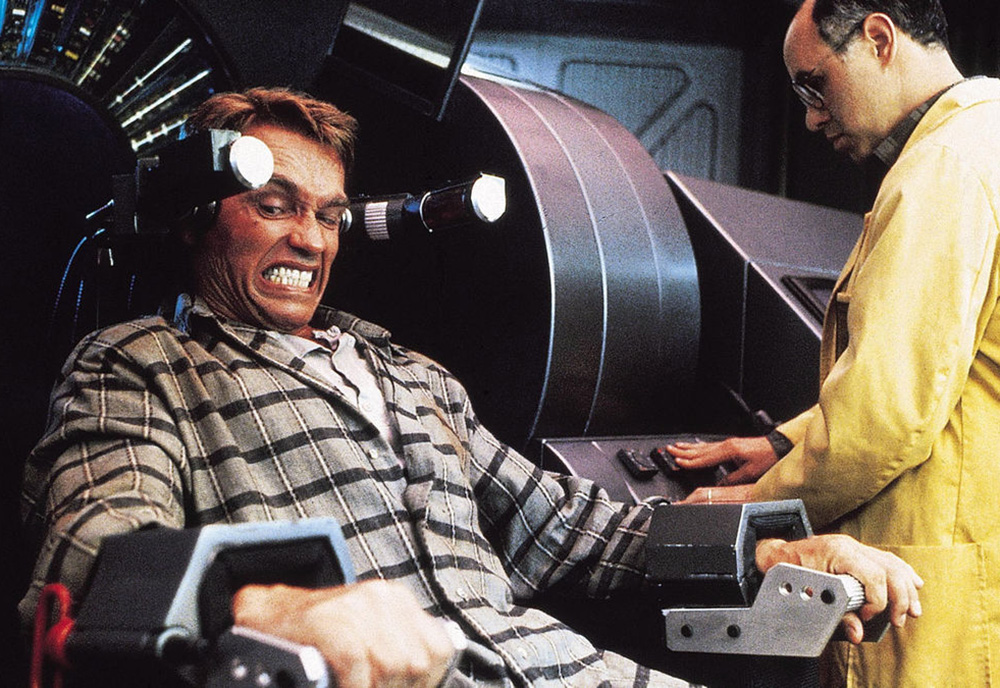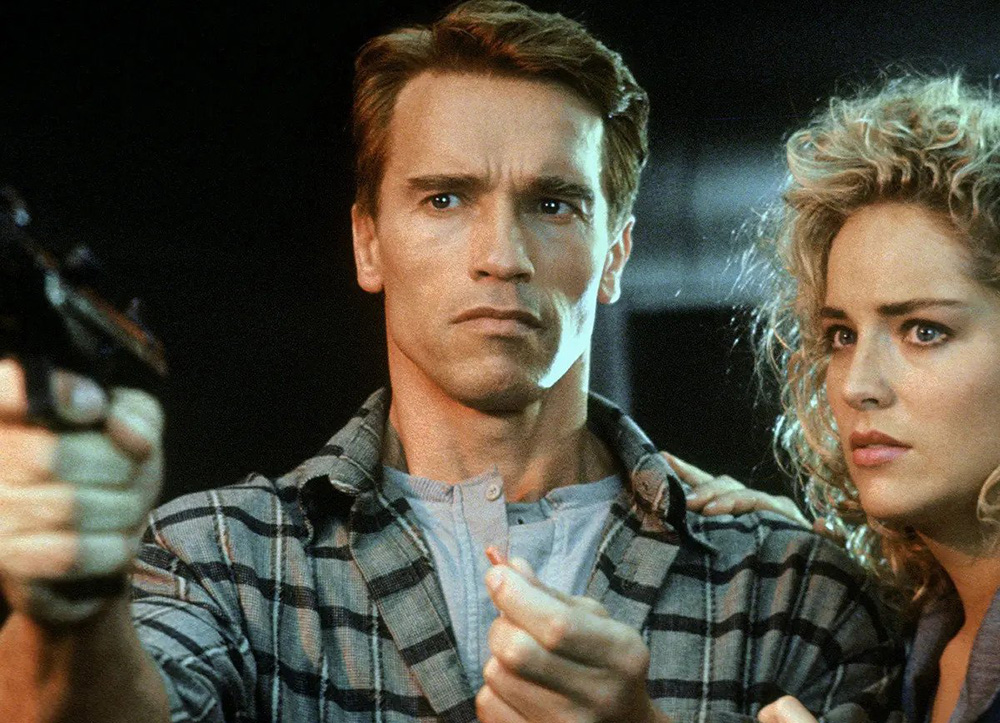“Total Recall,” the 1990 film adaptation of Philip K. Dick’s short story “We Can Remember It for You Wholesale,” is perennially fresh; it is a fully-realized exploration of Descartes’ Dream Argument. It is also a disquisition on the morality of the human soul, a tangled psychological mystery, and a knuckle-crunching action/science fiction thriller.
Dick’s tale as sci-fi fodder
That each of these strata lie snugly atop one another without a hint of disharmony is an immense achievement. The film is penned by Screenwriters Ronald Shusett, Dan O’Bannon, Jon Povill, Gary Goldman, and Director Paul Verhoeven. Dick’s story is a basic tale of a work-a-day schlub named Douglas Quaid (played by the anything but schlubby Arnold Schwarzenegger). The powers-that-be have scrubbed his memory of being a hired assassin on Mars has been scrubbed—or so they think. The memory implantation service Total Rekal dredges Quaid’s memories up when he buys their service of memory implantation, which the 99%’ers use when they can’t afford the real thing.
In his story, Dick doesn’t inject any analysis of the construction of human personality; nor does he explore the function of memory in the existence of a soul. His story is a basic plot, simply told. But he lays out a lovely, fallow field for the makers of “Total Recall” to plow. They sow humor, bravado, action, and excitement.
Schwarzenegger is a nice, blank canvas here. He amply depicts a simple drudge longing for the adventures promised in the implanted memories. It’s true that he has the physique of a trained assassin and champion body-builder. But that is a mere quibble.

Schwarzenegger and Stone propel the film
Sharon Stone is at the height of her fame and beauty as Quaid’s “wife;” her mission is to keep Quaid under control and in ignorance. Stone swivels her two faces of doting wife and deadly spy with stone cold accuracy here. She utilizes an intelligence that has Hollywood has both under-used and under-appreciated.
The film also stars ’90s icon Michael Ironside, and good set design by Robert Gould. The SFX are out of date enough to be as intriguing and charming as the dial telephone in your grandma’s parlor.
The wonderful red pill of false reality also appears here. “The Matrix” may have lifted the trope from this film; or perhaps both movies drew it from Japanese anime. In any case, the way the “Total Recall” uses it gives our pop culture senses connected to pop culture a nice little twitch.
There are so many great movies about memory. Try “The Manchurian Candidate” (1952) and “Spellbound” (1945) if you’re looking for more.


